Talking TV: Tamron Hall On TV’s Next Leaders
It’s a lot harder to get and keep a syndicated talk show these days, which makes Tamron Hall’s success all the more remarkable.
Hall’s eponymous show has been renewed through a fifth season, giving her more breathing space to build her “Tam Fam” of followers in the ever-more constricting syndication world.
In this Talking TV conversation, Hall shares the lessons she learned from producing the show during pandemic isolation, how maturity has changed her outlook on hosting and why she has signed on as the first-ever industry ambassador for the NAB Education Foundation.
Episode transcript below, edited for clarity.
Michael Depp: Getting and keeping a syndicated talk show has never been a harder gauntlet to run, and Tamron Hall is among the rarified few currently doing it. She’s even got a rare amount of runway with her eponymous show having been picked up for a fourth and fifth season through 2024.
More recently, Hall has been named the first-ever industry ambassador for the National Association of Broadcasters Leadership Foundation, which will see her working on campaigns and fundraising to ensure the nonprofit’s future.
I’m Michael Depp, editor of TVNewsCheck, and this is Talking TV, the podcast that brings you smart conversations about broadcasting. Up next, a conversation with Tamron Hall, looking at what she’s learned about the kind of talk show people want right now and what the enablers means for the industry’s future.
Welcome Tamron Hall to Talking TV.
Tamron Hall: Oh, thank you for having me. I’m excited to talk with you.
Tamron, the last time I spoke with you, you were doing the show from your kitchen in the early days of COVID in very uncertain times. And you’re back in the studio now. Things are looking a lot more certain for your show than for some of your competitors. How hard was it for you to keep the show going those days?
Oh, wow. You know, it’s hard to measure because we were all trying to keep our lives together. We were wondering about our children, our parents, our friends and to measure the difficulty. And I’m still at home, which is why the bernadoodle is already in the shot. We’re doing this currently from my home. But one of the things that came out of those difficult days is that we can do conversations like this from our home. And I hope to see you in our studio with the rest of our audience very soon.
It’s hard to measure because there were things that were priority over work, and that was personal health, family and all of those things that at the end of the day really do matter. It’s a blur in some ways, to be honest with you, Michael. But then there were moments of sheer excitement that I vividly remember, like returning to the studio. Being a TV junkie as a kid who can tell you all of the shows that I’ve watched since age 7, reminding myself that, like sports, television is a bellwether, like when Boston returned after the bombing or the Yankees played after 9/11. When people see daytime — especially — reset, it helps them to reset.
I think the front of my mind was always a worry of my 200 staff members who were all on the phone and trying to keep a connection and fearful that we didn’t know what was going to happen economically and beyond. But I’ll tell you this, Michael, there was a day a crew member, and I think it’s fair to call him one of those curmudgeon-cliche crew members that we all know, a great guy. And he walked over to me after I had a live audience to capacity, and I walked out and after the show, he came over to me tears in his eyes and said that felt good to walk out there and hearing that audience and we cried together and you know here’s this crew I’ve worked with on a lot of these shows who’s been a journeyman in this business and he’s a union guy and we’re crying, both emotionally connected and reacting in the same way to the audience, applauding me coming out those doors and what that meant.
What have you carried over from that period of time into making the show right now?
I carried a reminder of what resilience really means, and what TV means. If I were not doing this job, honestly, I don’t know what I would be doing. This was my backup plan. This was the plan and the backup plan — not necessarily a talk show, that came along the way through a set of circumstances. But it has reminded me of the true spirit of why I think this show works. It’s authentic. It’s not a big set. It’s not an expensive show. But it’s at the heart of what we all do, which is talk about life. And we were stripped away of any bells and whistles because of the pandemic.
There were shows that had $100 million budgets back in the day. That’s why Dateline kind of fell off, because the budgets were so insane. And so here we were with my baby monitor in the basement and my team on this thing that none of us had heard of, Zoom. And we made the show work. This Season 4 that we’re in now, which we’ve called the Golden Hour. I was inspired by Jill Scott’s song, Living My Life Like It’s Golden. And one day I was out in the sunshine taking a selfie with my son. And I said, That’s it. It’s the golden hour. It’s the hour that we spend with our audience each and every day just talking. And so having been stripped bare of all the bells and whistles that come with daytime television and now in a room, we went back saying, I’m not going to go to ABC Disney, to say, OK, I need this. I knew that. Don’t get me wrong, we do need things and they’ve been fantastic.
The show has been through three EPs since its inception, so do you think you’ve settled into an even keel now? What’s most different about the show’s current iteration?
I wouldn’t say been through three EPs. What I will say is everything evolves and every EP along the journey has helped us in different ways. But in reality, whether it’s a sports franchise, whether it’s a corporation, any business evolves. Very few businesses have the same manager with the same leadership in place, and then they do evolve. And so, for me, it’s finding out what we need in our current EP Quiana Burns and our current co-EP, Shannon High, are both exceptional producers.
At our core, we’re a new show, right? I’ve interviewed political leaders and people don’t ask me anything about it, but I do a cooking segment on the Today show and people come up to say that five-minute meal, was it really five minutes? Because at the end of the day, when you go home, sometimes that’s a bigger deal. And so, for me, having that sensibility was important. And I believe Quiana and Shannon bring that.
But all along the way, one of the things that was so important to me was to make sure that I would not apologize for leading my show and making and suggesting the changes as a woman, as a woman of color. And at the time, only myself and Wendy Williams were the Black women on TV who created, hosted and executive produced the show that they were on. Everyone else had been a cast member or a part of, in some cases keeping the show, but with an ensemble. So, I went in recognizing that I would not apologize for being the leader, that men — that White men — are often allowed to be to make their product better. And so that’s what we did.
What would be some of the most perceptively different things about the show in its current iteration, leaving aside the pandemic production? As the show has evolved, what’s perceptively different to viewers right now? Or would the changes be imperceptible and more behind the scenes?
I think we’re settling in. And my confidence is at its highest now and not necessarily the confidence I have in being a broadcaster, I don’t think. I don’t watch myself, by the way. I watch clips, but I can’t bring myself to watch an entire Tamron Hall because I’m so self-conscious, I’m still that 7-year-old kid from Texas who practiced getting rid of my Texas accent and when I watch it, I hear it. So, I think we have changed.
We’ve settled in and that goes back to the authenticity. We are the best that we are in whatever version of our lives when we are allowed to be who we are. And so, I’m goofy, but I’m a journalist and I’m a Virgo. So, I go down the rabbit hole, I’m analytical, I’m a lot of things. And the audience, the Tam Fam, has allowed me to do that. I am currently doing this in-depth interview with you while a dog is biting my hand and the audience works with that authenticity.
And so, for me, I think the evolution has been what Dorothy Gale said in my favorite movie, The Wizard of Oz. I was never away from home. It’s always been right there. We didn’t have to search for something. It was always right there. And the answer has always been being authentic.
A talk show’s success hinges on its hosts and people connecting with what you are presenting on air. I wonder in that period when you’re waiting on renewal, you’re subject to a lot of executives weighing in on you, they’re watching any new changes in the ratings, what is that like? Do you kind of see the show’s fate as a kind of referendum on you, or can you kind of separate your professional persona from the person?
I think I can, because I’m now 52. I think if I’d gotten this show at 37, which by the way, I’m sure if you came to me and said, Are you ready for a talk show, I would have said, absolutely. You know, I’m really 37 and I’m not there. But I think age has given me calm. I think losing my spot at the Today show in the way that I did stripped me of ego because it didn’t feel good to be trending the next day under those circumstances. But I think age, having gone from the youngest woman in the newsroom to in many cases the oldest, has given me a focus and a balance.
I remember a veteran anchor when I was in Chicago. She said to me: This business either quits you or you quit it. As a woman, we’re not allowed to age. We’re not allowed the space and the grace that men are allowed in this business. And so, when I got that second or third act or whoever is counting at 48, I think it also gave me a clearer understanding of this is part of my life but not my life.
Part of my life includes being a journalist and I enjoy it thoroughly, but I also love being my kid’s mom and I love writing and I love creating my own novel in the middle of a pandemic. Of course, you know, you watch the ratings, they watch you. But I have to say, the feedback from the executives, particularly from ABC, Disney and Hearst and all of our all of our partners, they were so supportive. And I think it’s maybe because we were all going into something in the pandemic.
My dog is trying to steal your show. I feel so bad. It’s like the competition gnawing at you, this is what daytime is like. It’s like a bernadoodle always nipping at your heels!
This is the bit that’s going to go viral.
I’m so embarrassed.
No problem at all. So, Tamron, this fall we’ve got two African American women with talk shows in the offing, Jennifer Hudson and Sherri Shepherd, and then Karamo Brown, an African American man, is taking over for Maury Povich. Do you sense a shift that more widespread diversity is rooting into the talk show space now?
Well, you know, that’s a weird question. I’ll tell you why, because the most successful person to ever do this talk show thing is a Black woman. And so that we would even be having that conversation how many years since the end of The Oprah Winfrey Show is bizarre in itself because that if she did not prove that audiences from all walks of life, from the fictitious middle America, that we’ve all been told about to the heartland that is as diverse as any other place these days.
It may not be black and white, but it’s socioeconomically diverse. And if we didn’t learn from that, how can we learn? So, I don’t know. That’s a tough question to answer. I also say people should be careful of lumping us all where we happen to all be African American, proud of who we are. But we do different things. And do we clump White hosts in? How many White daytime talk shows are there? Would you lump Kelly Clarkson and Drew, if you were interviewing Kelly right now, would you say, oh, there’s another White talk show host, Drew Barrymore? We wouldn’t. Because we do different things. We happen to all be Black, but we all do something different.
And so, I would say part of the diversity conversation in our industry is not clumping us together and recognizing the individual remarkable journeys that we’ve had and getting these talk shows and the connection that we have with our audiences.
So, Tamron, let’s talk about the NAB Leadership Foundation, which, of course, has a goal of diversifying the people leading this industry. TVNewsCheck has long been a supporter of the NABLF via our annual Women in Technology Awards, which benefits them. How did you get to be involved?
I was having a conversation with Emerson Coleman at Hearst, which is a partner of the Tamron Hall show, and the discussion of what I want to contribute to the industry beyond my talk show, beyond my years as a journalist. What can I bring to the dialogue? And this outreach component in the next generation kept coming up. And what do I do as the first Black woman to ever host the daytime Today show? What can I do to help move the needle? My story, the experience, is that I’ve had this wide range from the traditional world of reporting in Dallas, Fort Worth and Chicago, all the way up to the conglomerate that is the Today show and then on to my own talk show.
So, it came really organically, Michael, but the spirit and the intention was really born from my desire to leave an imprint in the industry beyond the work on TV and mentor and advocate and help. So many times when we’ve gone to hire staff, even with the daytime talk show that I have, you recognize that many of the people who would be great in the spot don’t even know the spot exists. They are not in the pipeline. They don’t know. I mean and I don’t mean that from just the view of Black and White.
I’m from a very tiny town, Luling, Texas. You know, socioeconomically most people there live below the poverty line. But I am here talking to you about my show. And that’s because I happened to have a great teacher who in high school knew someone who was a journalist at the Star-Telegram in Fort Worth, Texas. And this person took me under their wing, and I got $1,000 scholarship to pay for some books at Temple University. But it was this weird and chaotic life that I’ve lived in many ways that put me in the right room at this tiny paper in Fort Worth, Texas, that led to me being here.
And I want the opportunity to be more readily available to the next generation, whether they’re in front of the camera, behind the camera, in the executive office, whatever it is, because the best of this industry and the best of what we do is when everybody has a seat at the table. And how does that happen? It may happen through them hearing me speak somewhere. OK, Tamron Hall mentioned this. That’s how it was born.
What are you going to be doing for NABLF? Will you be mentoring directly?
Anything they ask, honestly. And I mean that sincerely. From mentoring to speaking engagements to conferences, spreading the word… You might not have noticed, but I like to talk a lot. It’s using my voice and my platform and my story. My story is this industry’s story. So often people believe that folks are led in the room, nepotism or connections. I had neither of those. And what I did have were people who are willing to mentor.
What I did have were examples of it being possible. WFAA-TV in 1978, my dad pointed to the TV and said, if you get your grades up, that can be you. He was pointing at Iola Johnson, the first Black woman to ever anchor the news in Dallas-Fort Worth, and I later got a chance to meet her at a conference for the Junior League. You know, I think these are weird occurrences. So, whatever they ask me to do, both in fundraising and an outreach and being accessible.
Just lastly, I want to ask you, if you were to find a young person out there right now at the beginnings of her potential career in broadcasting, knowing what you know now, having done what you’ve done so far, what would you tell her?
That is a big question. And there are many answers to it.
And you can be as frank as you want in that.
Oh, I understand. The daytime version of me would say, don’t let them change you. Stick to the plan. The news version of me would say it’s a business. Don’t forget that. And the local reporter would say this is the most awesome job you’ll ever have. Use it responsibly.
All right. Some advice for the ages, then. Tamron, it’s been so nice to speak to you again. Really appreciate it.
Thank you very much. And I’m sorry that my five-month-old bernadoodle clearly is looking for a job. So, if you put anything up for a dog that’s needed in the TV world, she’s available. Thank you for your patience and understanding.
You can watch past episodes of Talking TV on the TVN Videos page at TVNewsCheck.com. And you should keep that home page open as we always have continuously updated industry news there on the site. Talking TV is also on YouTube, where we are only slightly trailing Tamron Hall in followers and likes and Tamron and I now have a $100 bet that those tables will be turned imminently. Thank you for watching and listening to this episode and see you next time.



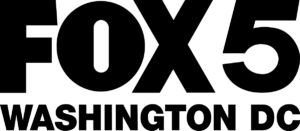

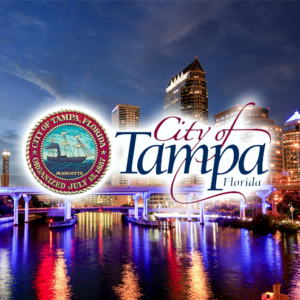

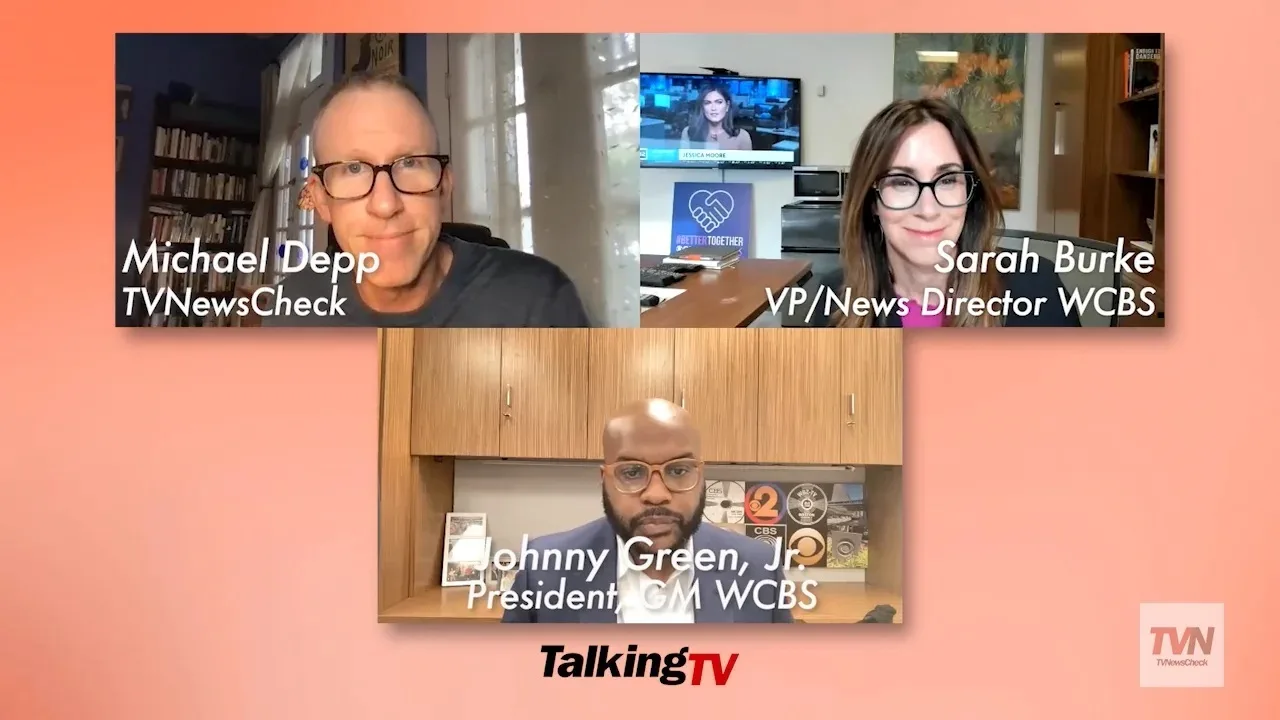
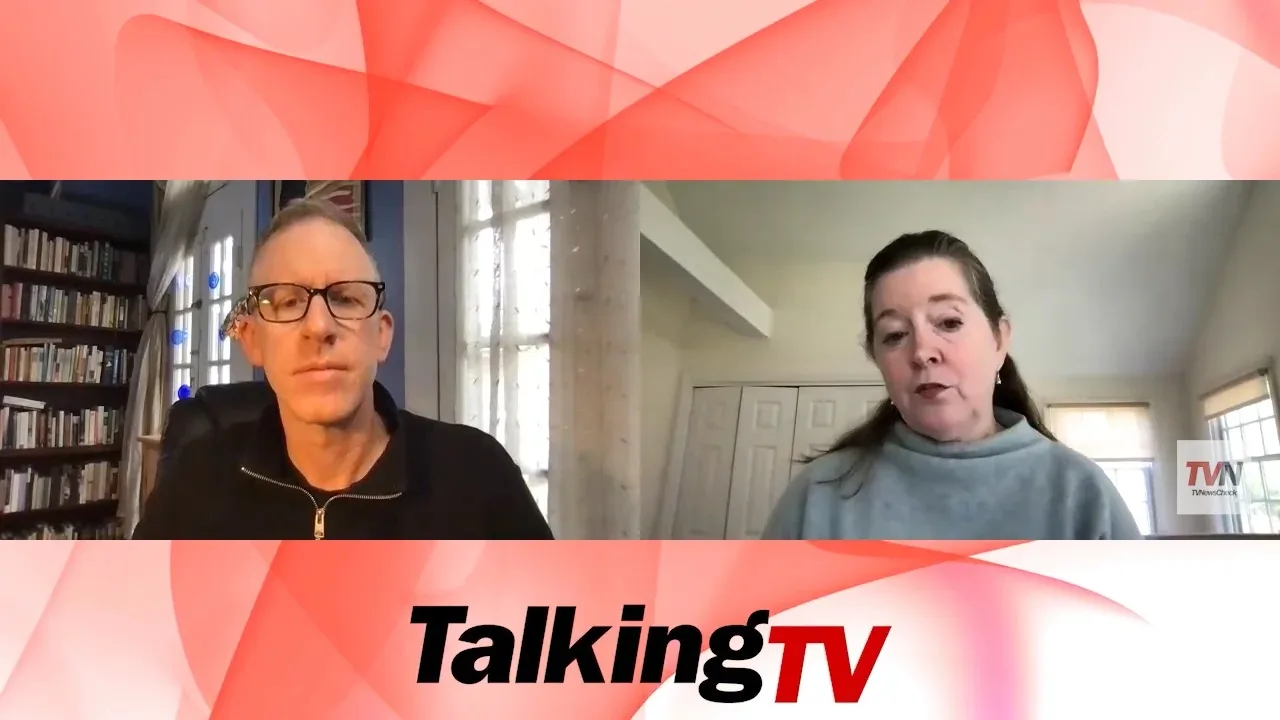


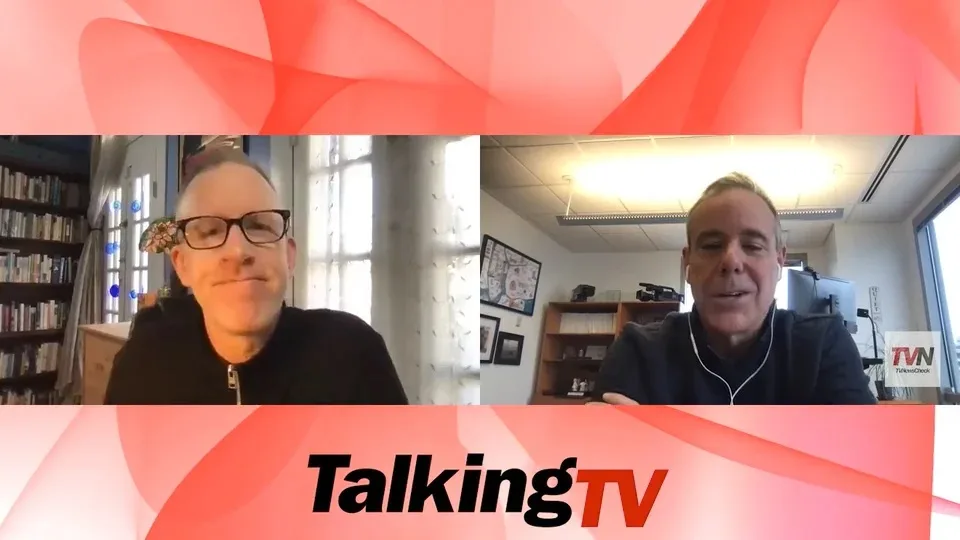

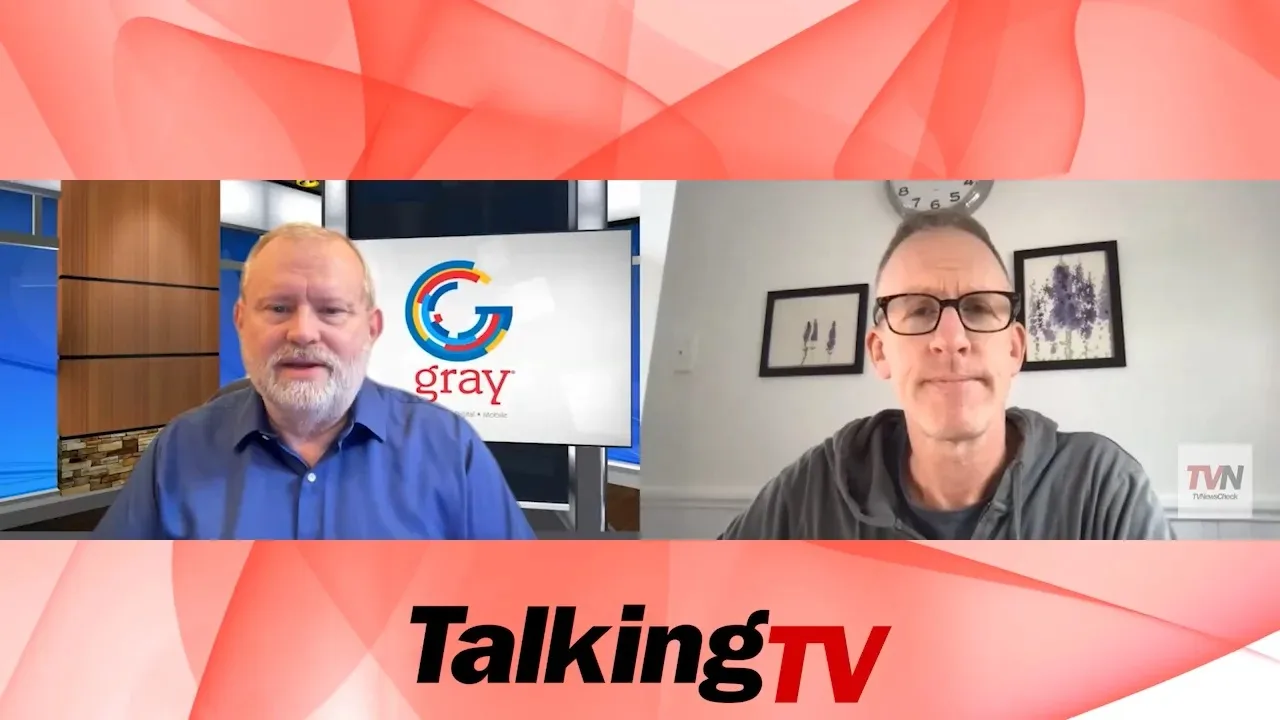














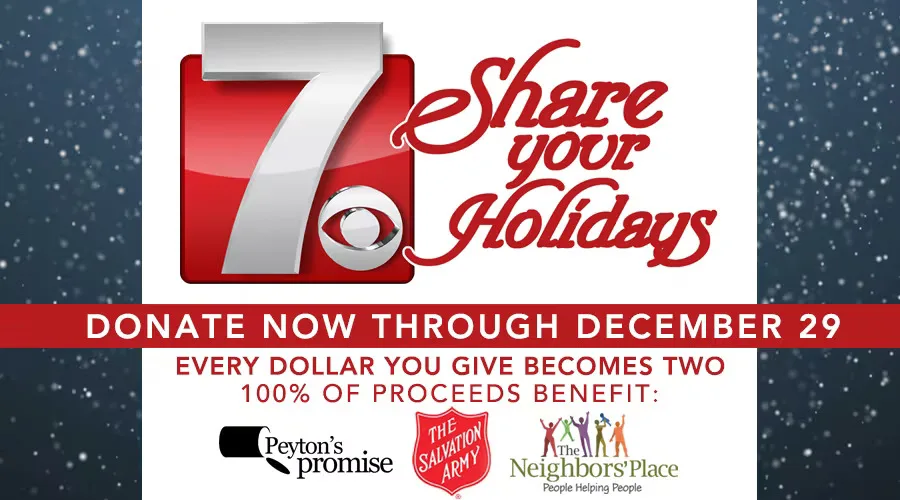


Comments (0)